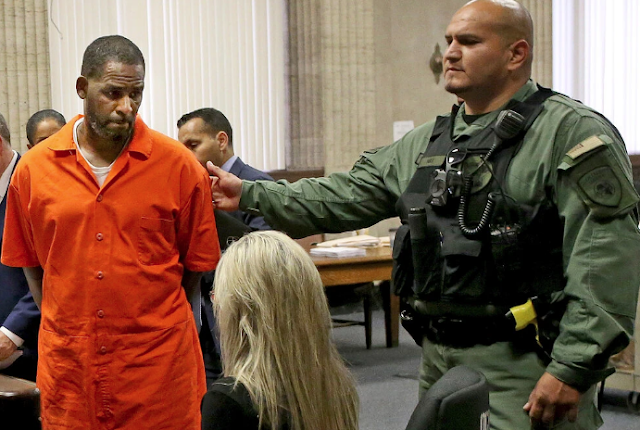In some ways, R Kelly, 54, stands out as an emblem of so-called cancel culture, his music — including hits like “I Believe I Can Fly” and “The World’s Greatest” — all but erased from the radio and other commercial placements, his high-profile concerts and record deals a thing of the past.
The NY Times reports data show that the popularity of his music online has remained remarkably steady in recent years. Since January 2019, when the Lifetime documentary series “Surviving R. Kelly” finally turned public opinion against him, Kelly’s music has had about 780 million audio streams in the United States — not counting YouTube videos, where he also remains popular — and his work is promoted on hundreds of official playlists. On Spotify, he draws 5.2 million listeners each month.
Looking at Kelly’s performance across multiple streaming and social-media platforms, the data service Chartmetric ranks him as one of music’s top 500 artists, at a level comparable to Michael Bublé and Carrie Underwood. On TikTok, some of the platform’s most popular influencers have used his music to soundtrack their posts, putting his total views there in the same ballpark as J. Cole and Frank Ocean.
Such a dichotomy may be the fate of superstar entertainers accused of serious misconduct — pariahs in certain places, but with enduring bodies of work that still draw large audiences. In the case of Michael Jackson, the subject of another 2019 documentary alleging sexual abuse, the commercial impact has proved minimal — in fact, streams of Jackson’s songs have grown.
The critic and filmmaker Dream Hampton, the executive producer of “Surviving R. Kelly,” called what Kelly has experienced in recent years a kind of “social death,” in which corporations and everyday members of society — exercise instructors, Uber drivers, backyard barbecue D.J.s — make a collective decision to stop embracing an artist.Even before 2000, when The Chicago Sun-Times published the first major investigation into allegations of abuse by Kelly, the singer had been followed by rumors and accusations of misconduct. Throughout the 1990s, he settled lawsuits accusing him of having sex with underage girls; in 1994, at 27, Kelly married Aaliyah, his then-15-year-old protégée, allegedly using forged documents.
In 2002, Kelly was indicted on child pornography charges after a video surfaced that authorities said showed the singer urinating on and having sex with an underage girl. He was acquitted in 2008. But Kelly thrived before, during and after the controversy, releasing 12 platinum albums in all. He collaborated with stars like Jay-Z, Whitney Houston, Lady Gaga and Chance the Rapper, and headlined major festivals into the 2010s.
The tide started to turn against Kelly in 2017, when Jim DeRogatis, who had long covered the Kelly case, reported for BuzzFeed News that the singer was holding young women in an abusive “cult.” A grass-roots campaign called #MuteRKelly gained traction that summer, targeting the singer’s label, RCA Records, along with radio stations, streaming services and concert venues.
After the broadcast of “Surviving R. Kelly,” with gripping firsthand accounts from his alleged victims, in January 2019, RCA dropped the singer from its roster, and some of his past collaborators apologized, while law-enforcement investigations in multiple states pursued the allegations anew.
“There was a long period where you could have enough plausible deniability, and then in one moment, it just collectively ended,” said Peter Rosenberg, a D.J. and morning show host for New York’s Hot 97 (97.1 FM), who called Kelly “completely dead” at the station.


No comments:
Post a Comment
Note: Only a member of this blog may post a comment.